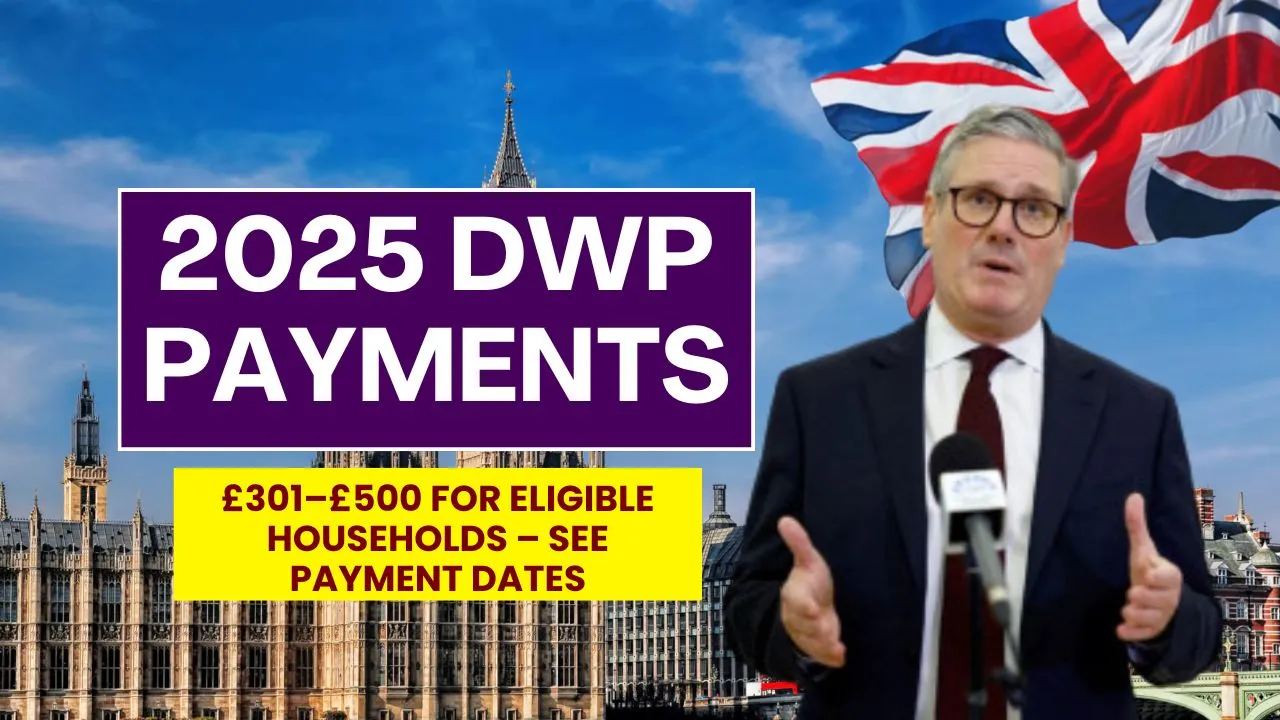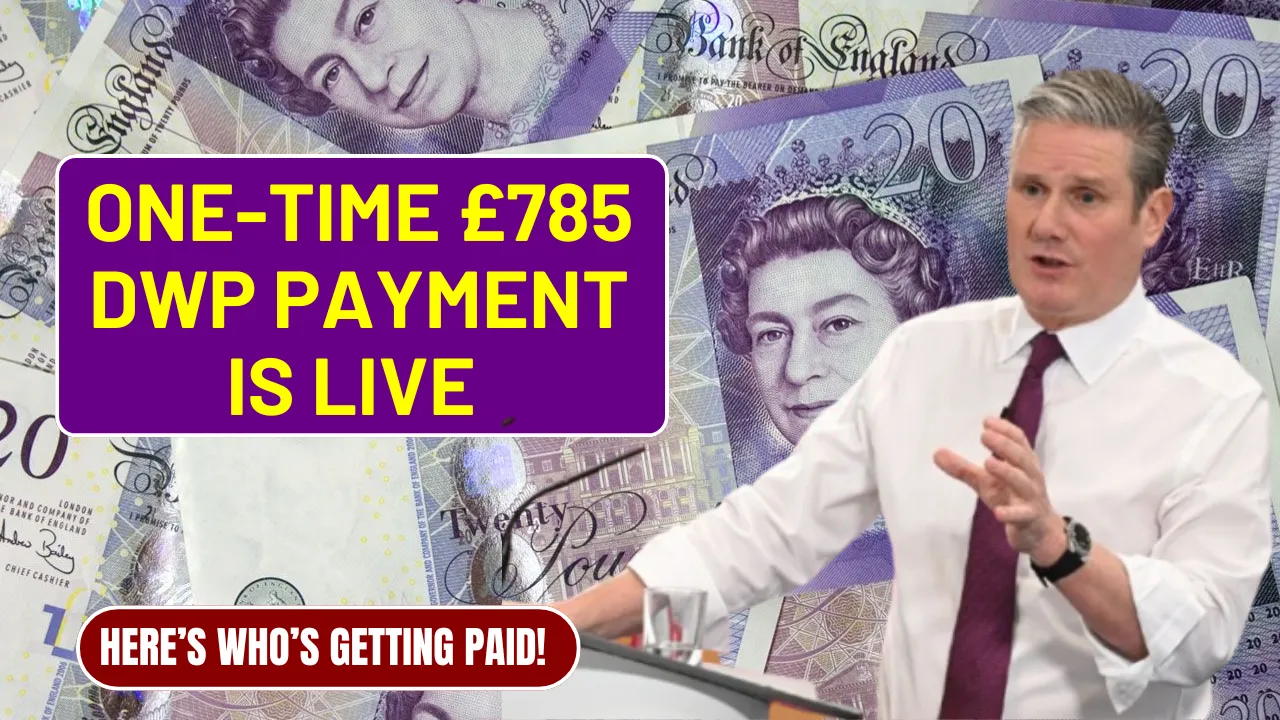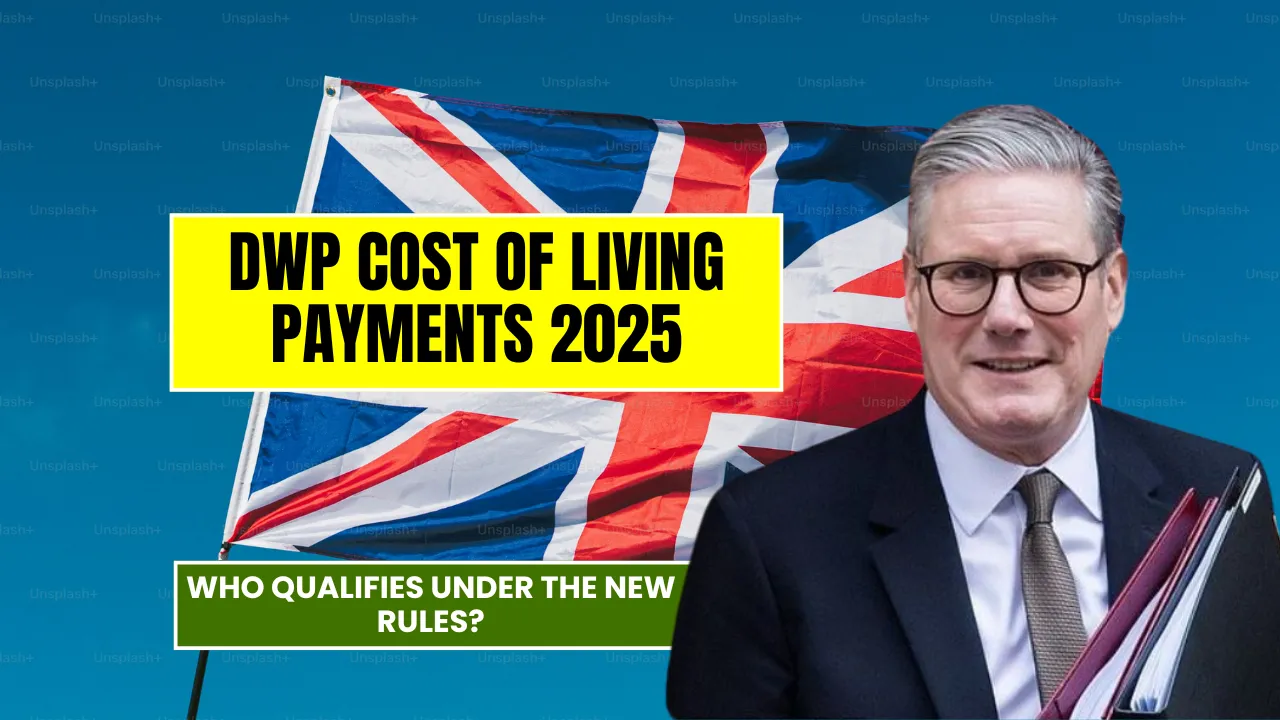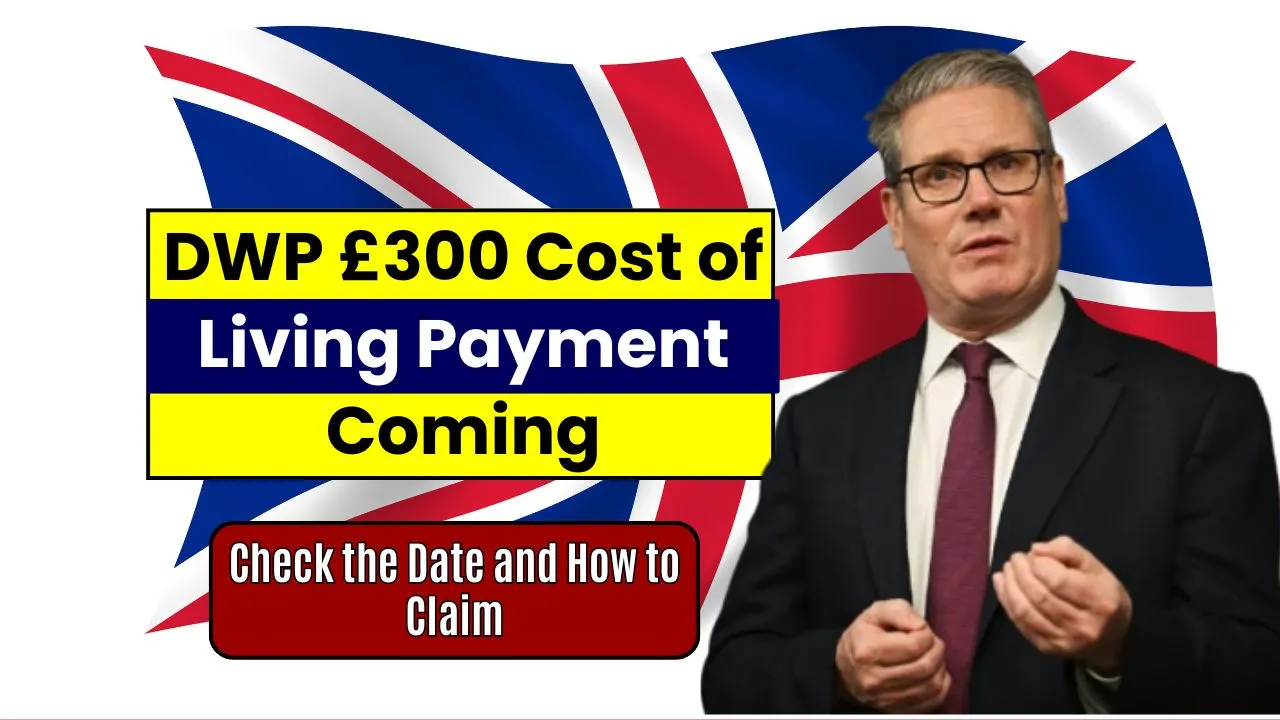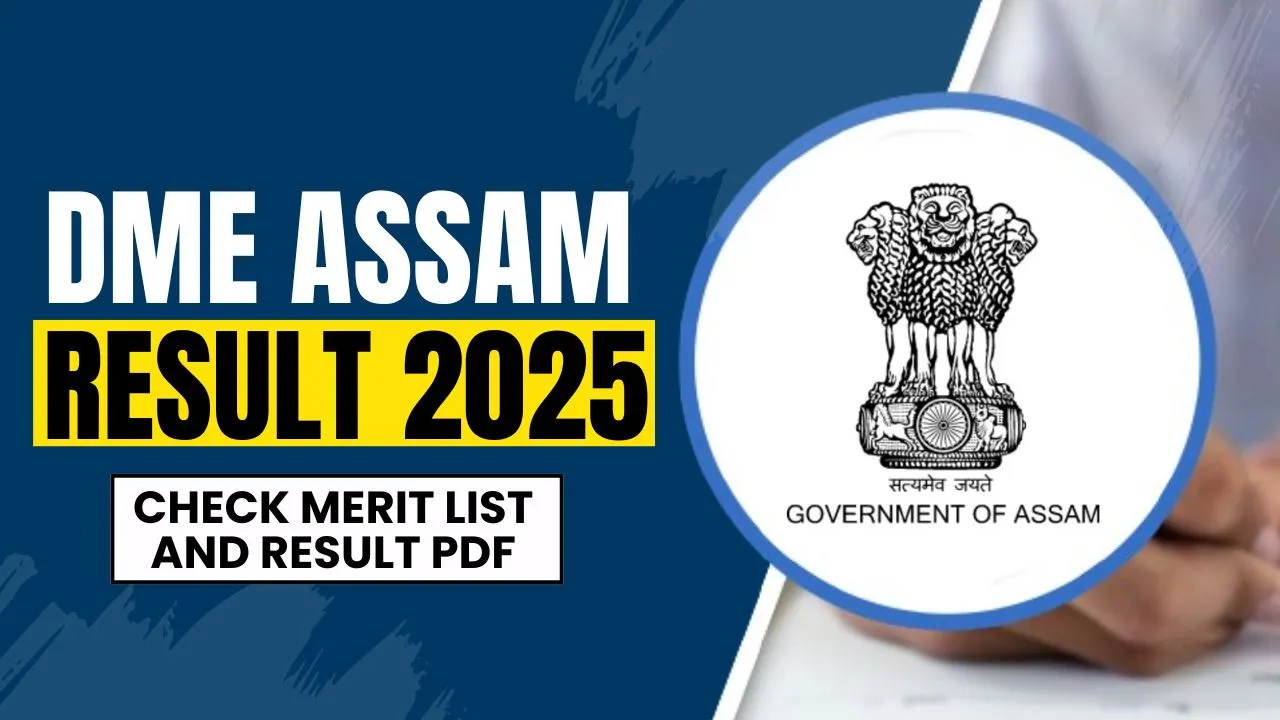DWP Payments 2025: DWP Payments 2025 have drawn a lot of attention from households across the UK. With high energy bills, increased food prices, and ongoing inflation, people are closely watching for any updates on financial support from the government. For many, these payments can be a lifeline during difficult times.
In this article, we explain the latest updates around DWP Payments 2025, including whether the £301–£500 support will return, changes to benefit rates, the Household Support Fund, and what you can do to check your eligibility. We’ve used real information from official sources to give you a clear picture of what’s currently confirmed and what may still be on the way.
2025 DWP Payments £301–£500: Current Status
As of now, DWP Payments 2025 between £301 and £500 have not been officially confirmed. The previous payments ended in February 2024, with the last being the £299 Cost of Living Payment. Although no new lump-sum payments have been announced this year, there are still important updates that help ease financial pressure, including increased benefits and local council support.
Overview Table – DWP Payments and Support in 2025
| Topic | Details |
| Confirmed £301–£500 Payments | Not officially confirmed for 2025 |
| Working-Age Benefit Increase | 1.7% rise from April 2025 |
| State Pension Increase | 4.1% under the triple lock policy |
| UC Repayment Deduction Cap | Reduced from 25% to 15% |
| Household Support Fund | £742 million available until March 2026 |
| Rumored £299 Payment | Still unconfirmed as of April 2025 |
| Official Source | GOV.UK and local councils |
What Were the £301–£500 Cost of Living Payments?
The UK government previously issued three cost of living payments to help struggling households. These included:
- £301 in Spring 2023
- £300 in Autumn 2023
- £299 in Winter 2024
These payments were automatically sent to people on certain benefits like Universal Credit, Pension Credit, and income-based ESA or JSA. However, this support ended in early 2024, and no new payments of this size have been confirmed for 2025 so far.
April 2025: Key Benefit Changes
Even without new one-off payments, some important benefit changes were introduced in April 2025 to help those receiving government support:
1. Working-Age Benefits Increased by 1.7%
From April, benefits like Universal Credit and PIP rose by 1.7% to help reflect inflation levels. While this increase is small, it still helps maintain the value of these payments.
2. State Pension Rises by 4.1%
The triple lock policy ensured that state pensions increased by 4.1% in 2025. This increase is based on whichever is highest among inflation, average wage growth, or 2.5%, helping pensioners keep up with rising costs.
3. Universal Credit Deductions Reduced
The amount taken from Universal Credit for debt repayment has been reduced from 25% to 15%. This means claimants will have more money in their hands each month, which can be vital for covering daily living costs.
Household Support Fund: A Vital Resource
The Household Support Fund has been extended for another year, with £742 million allocated for the period between April 2025 and March 2026. This fund is managed by local councils and is designed to help those who are not receiving other major benefits. It can be used to pay for essentials such as:
- Food
- Utility bills
- Water
- Household items like cookers or bedding
To access this help, you can contact your local council, either online or by phone, and ask how to apply.
Is a £299 Payment Still Possible in 2025?
There has been a lot of talk about a new £299 Cost of Living Payment in 2025. While nothing has been confirmed by the government, many people are hopeful that extra support might still be announced later in the year. Whether or not it happens depends on economic factors like inflation and government budget plans. For now, the government has not confirmed any such payment.
Who Could Be Eligible for 2025 Support?
Even though DWP Payments 2025 haven’t been confirmed, you might still qualify for other support if you receive any of the following:
- Universal Credit
- Pension Credit
- Income Support
- Income-based ESA or JSA
- Tax Credits
- Disability benefits like PIP, DLA, or Attendance Allowance
Eligibility rules can change, so it’s a good idea to regularly check your status using official tools at GOV.UK.
What You Can Do Now
While you wait for further news about DWP Payments 2025, here are some practical steps to take now:
- Review Your Current Benefits: Many people don’t claim benefits simply because they think they’re not eligible. Use online calculators to double-check.
- Seek Local Support: Councils offer services like emergency help, free school meals, and grants for household items.
- Use Free Budgeting Tools: Websites like MoneyHelper and Citizens Advice offer budgeting advice and help with debt.
Why Staying Informed Is Essential
In 2025, financial policies continue to shift. Whether it’s inflation changes, government schemes, or new benefit rules, staying updated can help you access the support you’re entitled to. Make it a habit to check reliable websites like:
- GOV.UK – Cost of Living Support
- Local council websites
- Official DWP news pages
Knowing what help is available could save you money and stress
FAQs – 2025 DWP Payments £301–£500
Q1: Will there be new Cost of Living Payments in 2025?
No, as of now, no £301–£500 payments have been officially confirmed.
Q2: Is the rumored £299 spring payment confirmed?
Not yet. The government hasn’t made any formal announcement.
Q3: How much has Universal Credit increased?
Universal Credit has gone up by 1.7% from April 2025.
Q4: Can I get help if I don’t receive benefits?
Yes. You may be able to get help from your local council through the Household Support Fund.
Q5: Where can I check for the latest updates?
Visit GOV.UK and your local council website for the most accurate and recent information.
Final Thought
While DWP Payments 2025 in the range of £301–£500 remain unconfirmed, there is still significant help available for households in need. Benefit increases, reduced deductions, and the continued Household Support Fund are all there to provide some relief. Take action now—check your eligibility, contact your council, and stay informed.
If this article helped you, feel free to share it and explore more about your benefits and local support. Don’t forget to stay connected for future updates!
